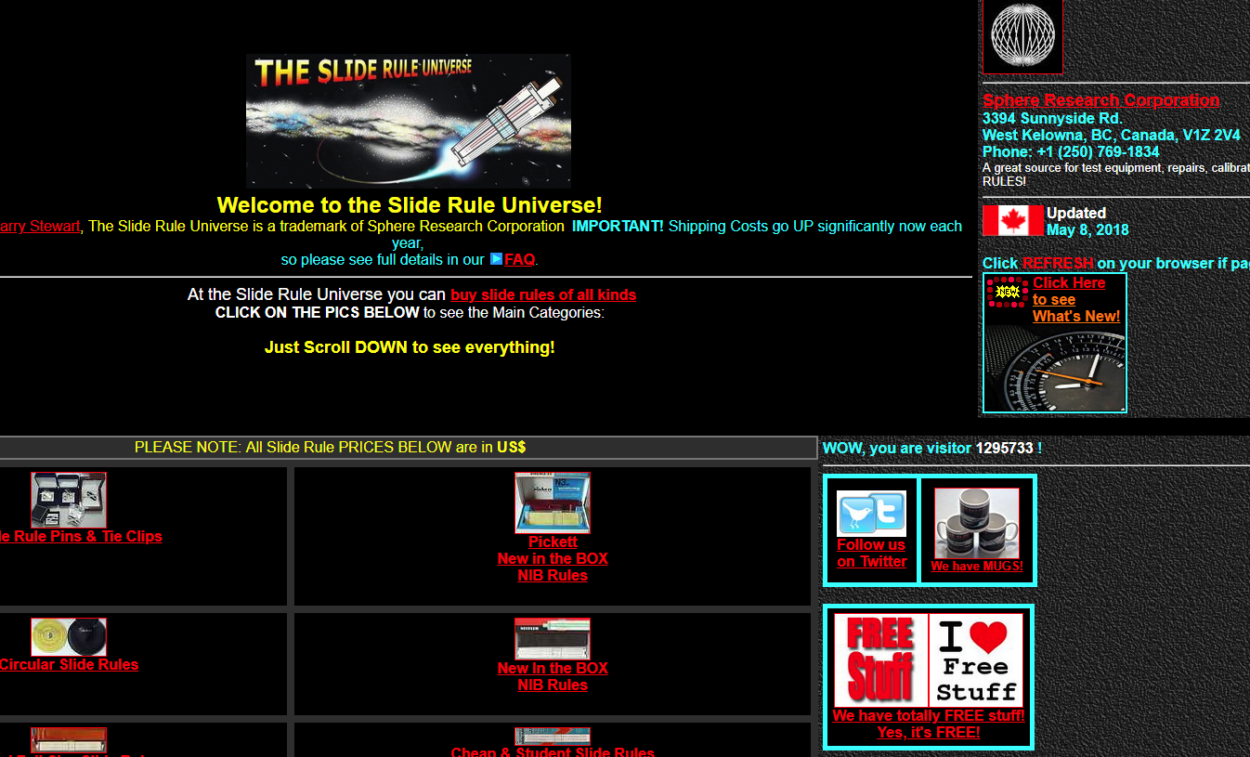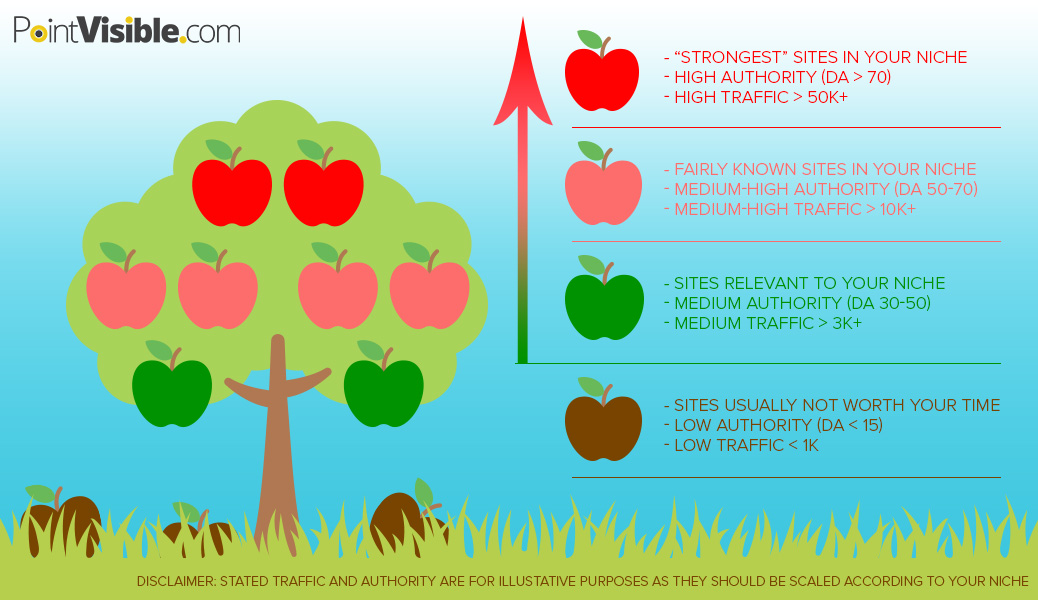
10 Link Building Practices That Are Suffocating Your Business Growth
Since businesses today can’t survive on the market without having an online presence which, in many cases, actually drives profit and growth, it is not surprising that everyone is so focused on link building.
While they are not necessarily doing it completely wrong, many still don’t know how to unlock the full potential of their link building campaigns.
If you are one of those marketing managers or business owners that are not satisfied with results that are “just fine”, you need to be aware of link building practices that can hold back your business growth.
#1 Not optimizing your website before the outreach
What do you mean by optimizing my website?
Two things:
- The overall impression of your website
- The quality of your blog content
But what does an impression of my website has to do with link building?
Let’s explain it with an example.
You send a guest post pitch. The editor opens the email, clicks on the homepage link, and then see something like this:

Do you think they will take their time to research the site and see if this is a legitimate business that deserves a shot when they have 40 more pitches they need to open? They will not.
Now that we got this out of the way, let’s talk about your blog section.
While you can build links to your website without a blog, having one gives you a lot of additional options in the form of different link building methods you can explore.
Additionally, it makes the whole link building process much cheaper because people are more inclined to link to valuable resources on your blog without asking for any kind of fee.
In contrast, try linking to your homepage/landing pages/features pages in the body of your guest posts and 9 out of 10 respectable blogs will tell you that the link will be removed, nofollowed, or that you have to pay a fee as this is now considered as a sponsored post.
TL;DR Make sure your website looks professional and your blog consists of valuable resources.
#2 Taking an ad-hoc approach to link building
Link building is easy in theory. Produce solid content, find respectable sites, exchange your content for the link.
And because the process seems so easy, many businesses start building links without any strategic approach. In such cases, 2 things happen:
- They see absolutely no results
- They see some increase in authority and rankings
The second situation is actually more devastating on your long-term results than the first one.
In the first scenario, you quickly realize that you are doing something wrong which prompts you to take a step back, analyze your actions, and look at what can be improved.
On the other hand, if you have actually seen some results, you might not realize that you are taking the unnecessarily hard path towards success and start to double or triple your link building budget. While that should still produce some results, having a plan is the only way to maximize the effects of your link building efforts.
For example, you can build 20 links towards 8 different pages on random anchor text, or you can make a plan and build 20 links to 2 different pages with a focus on one keyword for each page.
The latter approach will always give you better long-term results if your plan is based on proper keyword research and target audience analysis.
#3 Quantity over quality
There is nothing wrong with trying to build as many links as possible, as long as you don't compromise on quality.
To ensure the quality of your link building process, you need to have 3 things covered:
- You need to make sure you are producing and sending out content you are proud of
- Blogs you are targeting are relevant to your business
- Websites you are contacting have decent domain authority and traffic
Having good and relevant content is important because link building should never be just about links. Getting featured on relevant sites is one of the best ways to get valuable referral traffic and increase your brand trust and awareness. Something you can never achieve by publishing filler content that has no connection to your core business.
With that in mind, you should never trust someone who says they can build you a lot of links for a very small investment. When done right, link building is a time-intensive process which means it can’t be done cheaply without compromising on quality.
#4 Going straight for high authority sites
A common request we get from our more enthusiastic clients who are interested in our link building services is to get them featured on top authority blogs in their niche.
And while that is definitely a worthy goal to have, it should not be your immediate focus simply because your inexperience and lack of brand recognisability will only get in your way.
However, if you are already an established brand with lots of great content examples in your bag, then you don’t have anything stopping you to reach out to those sites.
What we like to do with clients that are new to link building and content marketing is to go for low hanging fruits first. This means you first build a few links from sites with moderate authority, then you go a bit higher and try to publish content on sites with higher authority.
Now that you…
- have great content published on respectable sites you can show as examples
- A/B tested your guest post pitch to see what work and what doesn’t
- got the hang of the whole link building process
…it is a great time to try and reach out to top sites in your niche.

While it is not impossible to publish your content on sites like Entrepreneur early on, having a tested pitch backed up with great content examples will exponentially increase your chance for a positive reply. In some cases, even this is not enough and you actually need to work on building a relationship with the editors first.
Nothing less important is the fact that those kinds of sites usually have challenging guidelines and a demanding application process (when compared to regular sites).
All the more reasons to come to this battle fully prepared.
#5 Focusing on a single link building strategy
There are many reasons why businesses focus only on a single link building method.
Some do not want to change their approach because they are seeing solid results, some do not have enough resources and/or knowledge to explore other solutions, and the rest believe that other link building methods just won’t work for them.
While the truth is that some link building methods do work better than others (depending on your business type, available content, and niche), it doesn't change the fact that that the combination of different approaches to link building often yields the best results.
Let’s imagine you have a project management tool and you have been doing guest blogging for a while because that worked great for you so far. If you combine that with an outreach campaign aimed at getting you featured on websites that list and review PM tools, in the long-term, you might get even more leads and customers than you would ever have if you focused solely on guest posting.
Never restrict your options if you have the resources to expand your reach.
#6 Trying to use too many different link building methods at once
Yes, we are aware that we just said you shouldn’t focus on a single link building method. What we didn’t say is – use 10 different link building methods at once instead.
This point basically comes down to resource management. With big enough budget and staff, you may very well get away with using multiple link building methods at once.
But that is rarely the case, especially if you are a small business.
While we don’t want to discourage you from testing out different link building options (because you can never be 100% sure what will and will not work for you), don’t do it at the same time and don’t do it by significantly cutting down the resources on the approach that is currently giving you good results.
Your best course of action is to concentrate on a method that is clearly working and slowly test other methods that could supplement your current strategy.
Otherwise, you will have a hard time discerning which method got you the best results and you can’t expect your business to grow if you’re stuck in the testing phase forever.

#7 Not insisting on quality content
There are several reasons you should insist on high content quality.
As we mentioned before, having great content on your blog makes the link building process a bit easier, as you have something interesting to link to.
What’s with the content you send out to be published on other websites? Excellent content writers can be expensive and many marketers know that they will still be able to get their piece published even if it is mediocre, so they do not want to spend too many resources on content creation.
If you are only interested in getting the link, that might work. But what about brand awareness? What about brand image and trust? Quality referral traffic?
Do you really think somebody will remember you because they read your filler article? Better yet, do you want to be remembered as someone who is spreading around useless content?
Publishing a guest post just to get a link is like changing your diet when you want to lose some weight. It is the step in the right direction and will get you some results, but the process will be much faster and more effective if you put in some extra work.
There are more things besides links that can fuel your business growth and you can make all of them work for you by ensuring you are only sending out valuable content.
#8 Religiously avoiding nofollow links
We are not here to debate how nofollow links can bring you the same SEO value as their dofollow counterparts. Because they can’t.
However, that doesn’t mean they are useless. Far from it. Nofollow links will bring you all the same benefits as a dofollow links (brand awareness, referral traffic…), you just won’t get much, as an industry jargon goes, link juice.
If you are one of those businesses that avoid pitching to any site that can’t give you a dofollow link, you are missing out.
For example, did you know that big sites like Entrepreneur and SEMRush nofollow most of their outgoing links? Despite that, some businesses are willing to pay over $1k for a chance to publish their piece there.
If you are wondering why, you just need to look at the metrics.

If the website you’re pitching to is strong enough, immediate exposure and referral traffic you can get can be more valuable for your business growth than the link juice you were initially after.
You can learn more about nofollow vs dofollow debate here.
#9 Not investing in appropriate tools
Let’s not beat around the bushes. If you are planning to do a bigger link building project, you will have to use some marketing tools. There is simply no other way around it.
You can try to do everything manually but, sooner or later, you will realize that you are spending so much time on it that it barely pays off.
Here are our must-have tool recommendations:
Blogger outreach tools
- find reputable websites in your niche
- find relevant contact information
- efficiently manage all incoming and outgoing emails
- craft and A/B test personalized outreach templates
Backlink checker/Competitor analysis tool
- inspect SEO metrics (traffic, trust, authority) of websites you are reaching out to
- can also be used for competition analysis and content idea generation
Project management tool
- set goals for your link building projects and keep your team accountable
- track the progress of your link building campaigns
- track and manage your content creation process
The downside of these tools is that some can be fairly expensive and it might take a while for your team to learn how to use them efficiently. If you don’t have the resources for it, you should consider outsourcing your link building projects.
#10 Refusing to adapt to your niche and your business model
Sometimes, when marketers switch firms and industries, they get stuck on methods that gave them good results in the past. That can be a dangerous mindset because, as we already said, not all link building methods work equally well across the board.
For instance, the travel industry is notorious for their sponsored posts. Since the bloggers you are contacting often live off of their blog, you will have to pay some fee to publish a post there, no matter how good your post is.
Maybe, a better approach would be to make an in-depth list of locations/apps/preparation tips and offer that to bloggers as something they can link to in one of their future articles. You will never know if it works until you try it out.
A similar thing businesses struggle with is adapting their link building practices to their business model. If you are in the gambling industry or have a website that provides discount codes, you have to be aware that sponsored posts are the only way to do guest posting. As 9 out of 10 websites won’t publish your content otherwise, refusing to pay a fee will be detrimental to the success of your link building campaigns.
If you can objectively say that you are doing a good job with your current link building process and you are not seeing the results you should see, it is time to reconsider your approach.
Where do you go from here?
We hope that this article shed enough light on common link building practices that can hold back your business growth and gave you a good idea of where and how can you improve your link building process.
If you can recognize yourself in many of these points and you are not sure how to climb out of that well, don’t hesitate to reach out – we have a long rope and plenty of helping hands ready to pull you up.
Get in touch or schedule a call and tell us more about your project.
Ready to Take Your SEO to the Next Level?
Get started with quality backlinks and content marketing today
